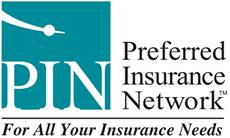Starting your own business means taking on responsibility for both your operations and the safety of your employees, clients, and assets. Business insurance helps protect your company from potential risks and financial losses, ensuring that your business can recover from unexpected events.
Key Benefits of Business Insurance:
Legal Protection: Protect your business from lawsuits and potential claims.
Property Coverage: Covers damages to your physical assets, like office buildings and equipment.
Financial Security: Provides peace of mind by preventing significant out-of-pocket expenses for unforeseen events.
Stat Fact: A 2022 survey found that 75% of small businesses experience at least one insurable event during their first year. With risks constantly evolving, it’s crucial to have the proper coverage.
Types of Business Insurance Every Startup Needs
Choosing the right insurance depends on your business model, industry, and risks. Here’s a breakdown of the essential types of insurance coverage for new businesses:
1. General Liability Insurance
This policy protects your business from third-party claims involving bodily injury, property damage, and advertising injury.
- Example: A customer slips and falls on your premises, leading to medical expenses and legal fees.
2. Commercial Property Insurance
Whether you own or lease property, this insurance covers damage to buildings, equipment, inventory, and other physical assets.
- Example: A fire destroys your office or inventory, leading to major financial loss.
3. Workers’ Compensation Insurance
If your business has employees, workers’ compensation is required in most states. This insurance covers medical expenses and lost wages for employees injured on the job.
- Example: An employee sustains an injury while working on-site.
4. Professional Liability Insurance (Errors and Omissions)
This is especially important for businesses that provide professional services. It covers legal costs if a client sues for mistakes or omissions in your professional work.
- Example: A client sues after an error in your consulting services causes them financial harm.
5. Business Interruption Insurance
This coverage helps replace lost income when your business is forced to close due to a covered event, like a natural disaster.
- Example: Your business suffers significant loss of revenue after a hurricane causes physical damage to your property.
6. Cyber Liability Insurance
This coverage is becoming increasingly important as businesses become more reliant on digital platforms. It covers data breaches and cyberattacks.
- Example: A hacker compromises your business’s sensitive customer data, leading to lawsuits and loss of business reputation.
How to Assess Your Business’s Insurance Needs
Every business has unique needs when it comes to insurance. Consider the following factors to determine which policies you should purchase:
Industry: Some industries are riskier than others and may require additional coverage. For example, tech startups might need cyber liability insurance, while construction companies should consider general liability and workers’ comp.
Location: Geographic risks like floods, earthquakes, or hurricanes may require specific coverage.
Business Size and Revenue: Larger businesses or those with high revenue might need more extensive coverage, while small businesses may need less. However, don’t underestimate the risks you face—adequate insurance is crucial regardless of size.
Employee Count: If you have employees, workers’ compensation and employment practices liability insurance are essential.
Assets: If you own valuable assets like expensive equipment or commercial property, you’ll want adequate property and casualty coverage.
Common Mistakes to Avoid When Choosing Business Insurance
Not Having Enough Coverage: Undermining your business can leave you vulnerable to significant losses. Make sure your coverage is adequate for the size and scope of your business.
Overlooking Industry-Specific Insurance Needs: Depending on your industry, you may need specialized coverage. For example, technology businesses often need cyber liability, while health-related businesses may need malpractice insurance.
Failing to Review Your Policies Regularly: As your business grows, your insurance needs will evolve. Regularly assess your coverage to make sure it’s still adequate.
Why Choose Us for Your Business Insurance Needs?
At 4PIN, we understand that no two businesses are the same. Our team of experts works with top insurers to provide customized solutions that offer the right level of protection at competitive rates. Whether you’re just starting out or are looking to adjust your coverage, we can help.
Starting a business is a big step—protect it with the right insurance. Contact us today to get a customized insurance plan that covers your startup’s unique needs.
Our guide delves into the intricacies of various insurance options tailored for startups. From general liability that protects against third-party claims to property insurance covering physical assets, we demystify the essentials. Additionally, learn about professional liability insurance, crucial for service-based businesses.
Personalizing insurance to your industry, size, and location is pivotal. Our guide offers insights on customizing coverage to align with your venture’s unique needs. By making informed insurance decisions, you fortify your business’s foundation.
Stay ahead in your competitive niche by preemptively mitigating potential risks. Our expert-backed advice empowers you to confidently select the right coverage, ensuring your startup’s longevity. Don’t underestimate the significance of comprehensive insurance in sustaining and scaling your enterprise. Access our “Essential Business Insurance Guide” now and lay down the security bedrock for your flourishing venture.
